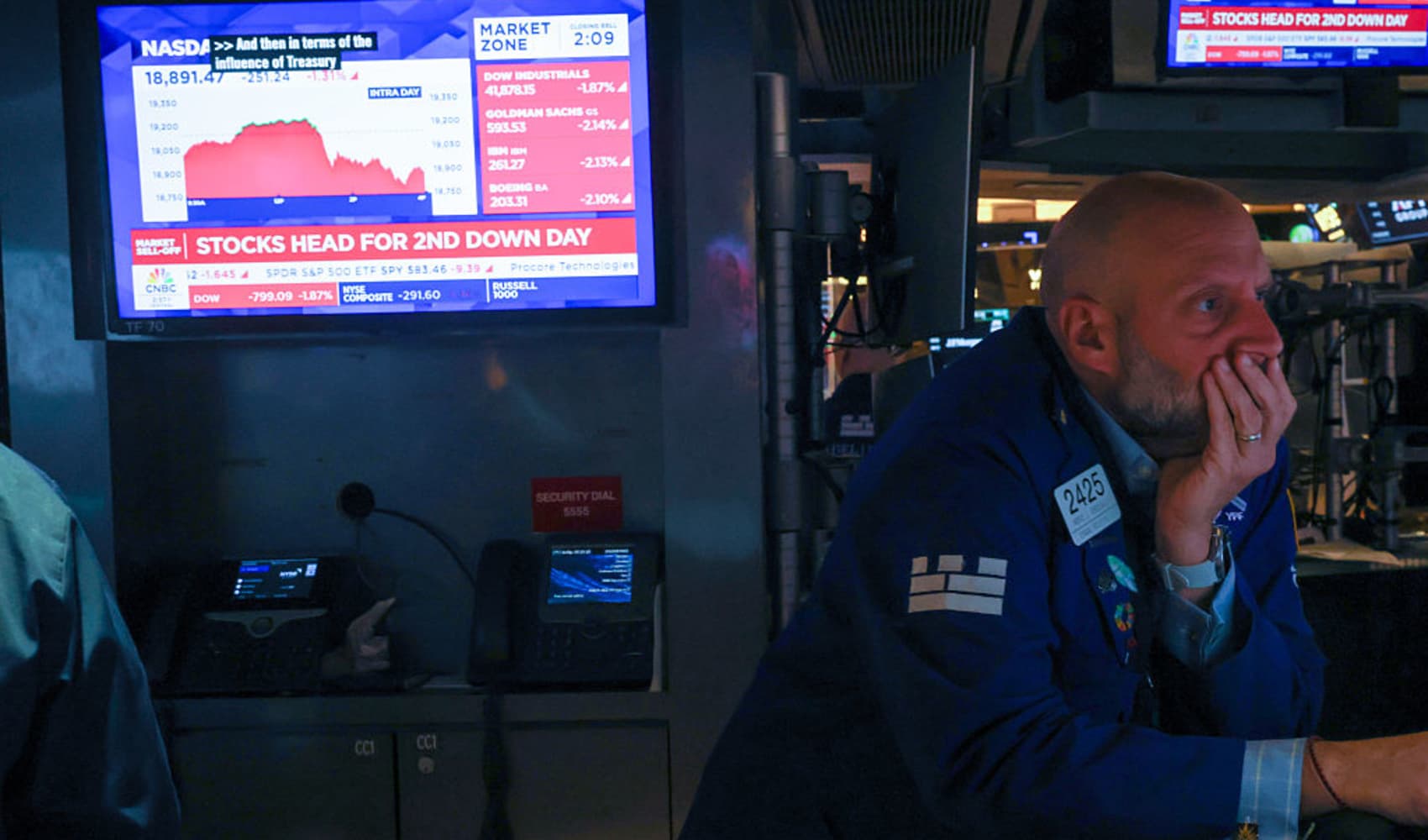![[CNBC] ‘The calm before the storm’: Prices drop slightly, but tariffs could push costs higher](https://media.nbcdfw.com/2025/05/106963490-1634759952978-gettyimages-1308615771-dsc05921.jpeg?quality=85&strip=all&resize=320%2C180)
Prices have eased amid a slowing economy, but that might not last as new tariffs take effect.
Inflation rose 0.2% in April, for a year-over-year rate of 2.3%, which is slightly less than forecasted and coming in just below March's 2.4% pace, per Consumer Price Index data released Tuesday. The CPI tracks average monthly price changes for the goods and services Americans commonly buy.
Watch NBC 5 free wherever you are
Core inflation, a measure that strips out volatile food and energy prices and is viewed as a better gauge of underlying inflation trends, remained at 2.8%.
Both inflation rates are above the Federal Reserve's overall target of 2% — a sign that inflation is cooling but not fully under control.
Get top local stories delivered to you every morning with NBC DFW's News Headlines newsletter.
Even so, costs have seemingly leveled out as the economy shows signs of slowing. Airfare prices have dipped, gas prices are easing, and used car prices continue to fall, per April's CPI data. While slowing prices is a relief for consumers, the trend may not last.
Tariffs are still expected to increase inflation
A new round of tariffs on most imports began raising costs for businesses in April. While some measures have been paused — including a Monday hold on additional tariffs for Chinese goods — many are now in effect, including a 10% baseline tariff on most countries.
Money Report
For now, the full impact on consumer prices appears to be delayed. Many companies stocked up on goods earlier this year in anticipation of tariffs, hoping to avoid price hikes and supply disruptions. That buildup is helping cushion near-term price increases, according to recent guidance by RBC.
"Not all inventories will turn over immediately, so April is not capturing all of the price changes that may already be working their way through the system," says Stephen Kates, a financial analyst at Bankrate. "May and June data will be better reflections of the decisions businesses have made in light of both their higher costs and the most recently rolled out trade policies."
Because of the lag in how tariffs affect prices, April's lower inflation reading is "the calm before the storm," says Christopher Naghibi, chief operating officer at First Foundation Bank.
While many analysts expect inflation to rise in the months ahead, frequent changes in trade policy have added uncertainty to the forecasts. That said, businesses are expecting 3.9% inflation over the next year, according to a recent survey from the Cleveland Fed.
Accelerating inflation would create new uncertainty for the Federal Reserve, which has kept interest rates elevated in an effort to curb price growth by discouraging borrowing and spending. But if prices rise again, rate cuts could be delayed. That means borrowing costs would stay higher for longer.
Want a new career that's higher-paying, more flexible or fulfilling? Take CNBC's new online course How to Change Careers and Be Happier at Work. Expert instructors will teach you strategies to network successfully, revamp your resume and confidently transition into your dream career. Start today and use coupon code EARLYBIRD for an introductory discount of 30% off $67 (+taxes and fees) through May 13, 2025.
Plus, sign up for CNBC Make It's newsletter to get tips and tricks for success at work, with money and in life.






